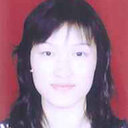Effect of Peony-Glycyrrhiza Decoction on Amisulpride-Induced Hyperprolactinemia in Women with Schizophrenia: A Preliminary Study.
Keywords
Abstract
UNASSIGNED
The aim of this study is to observe the effect of Peony-Glycyrrhiza Decoction (PGD) on hyperprolactinemia in women with schizophrenia induced by Amisulpride.
UNASSIGNED
A total of 41 female schizophrenia patients receiving Amisulpride were randomly divided into placebo (n = 20) and PGD groups (n = 21). Maintaining the original Amisulpride dose, the two groups were given placebo and PGD, respectively. The levels of Prolactin (PRL) and other hormones were measured on the initial day and at weeks 4 and 8 after treatment. Changes of clinical symptoms in patients with hyperprolactinemia were observed. The PANSS scores were recorded to assess the psychotic symptoms.
UNASSIGNED
Compared with placebo group, level of PRL decreased while Progesterone increased remarkably in the PGD group at weeks 4 and 8 (p < 0.01), and level of Estradiol in the PGD group increased significantly at week 8 (p < 0.05). There were no differences in PANSS scores and biochemical indexes between two groups at weeks 4 and 8.
UNASSIGNED
PGD can improve symptoms of hyperprolactinemia and hormone levels in women with schizophrenia caused by Amisulpride, without affecting their mental symptoms and biochemical indexes.




